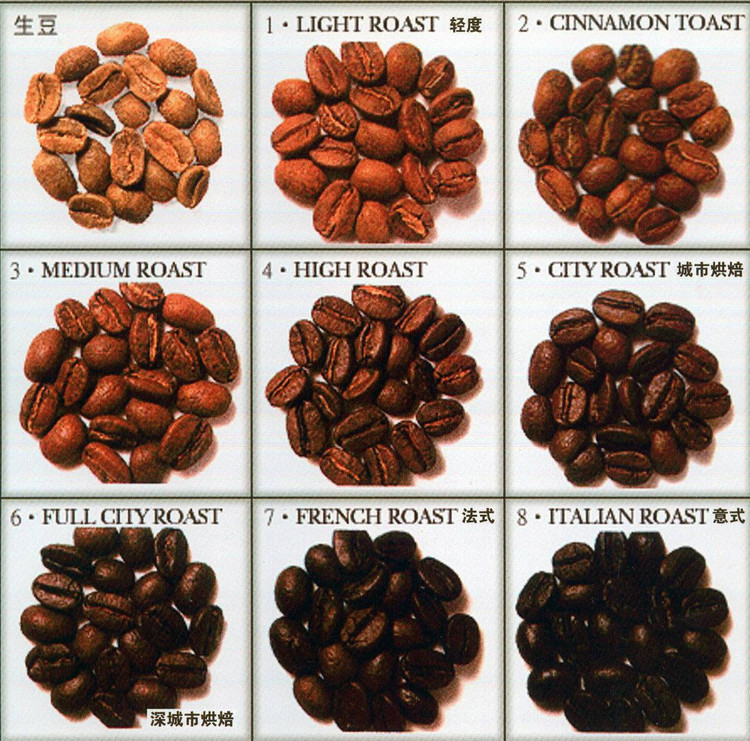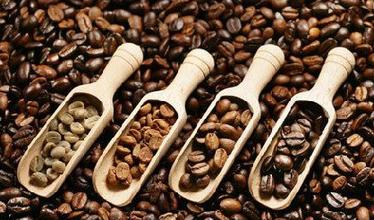How to choose Fairtrade Fairtrade Coffee from Sunshine Cooperative in Cajamaka producing area of Peru
Peruvian coffee
Peru (Peru) is also a big coffee producer.
Coffee producing areas in Peru:
Up to 98% of Peruvian coffee is grown in forest areas, and most producers are small farmers.
Peru's finest coffee is produced in Chanchmayo, Cuzco, Norte and Puno. Most Peruvian coffee is grown under natural conditions, but it is also difficult to confirm the cultivation of all coffee trees. Coffee grown under natural conditions costs 10% more than others. Judging from poverty, farmers may not have the money to buy chemical fertilizers and pesticides, but it is really difficult to confirm all the coffee.
Peruvian coffee features:
The quality of Peruvian coffee is comparable to that of any kind of coffee in Central or South America.
Flavor: balanced taste and delicious acidity
Suggested roasting method: medium to deep roasting, can be made into high-quality mixed coffee suitable for various uses
★: general
Peruvian coffee market:
The private Peruvian Coffee exporters Association (ComeradeExportadoresdeCafedelPeru) has been established, which is committed to improving the quality of coffee. Its primary task is to set standards and eliminate inferior products, so as to create an atmosphere of quality supremacy. This positive move heralds a bright future for the coffee industry. Since then, rising prices have encouraged farmers to actively grow coffee rather than cocoa, the region's traditional cash crop.
The high quality coffee produced by Peru is shipped to Germany for blending and then to Japan and the United States, which also illustrates its high standard of quality.
Sunshine Cooperative (SOL Y COOP) was established in 2005, located in the Cajamarca coffee producing area of Peru (Peru) in South America, the eastern mountains of the Andes Mountains, the cooperative is surrounded by natural primeval rainforest, a large amount of fine sand provides a well-drained soil, the daily afternoon intermittent rain brings abundant Rain Water and moisture, and native animals and plants create natural shade and natural organic matter to increase soil fertility. At the same time, with the funding and support of the USAID and the Hong Kong Caritas Caritas Jaen technical team, the Sunshine Cooperative has established its foundation steadily, but the members of the cooperative are not spoiled by the perfect background. They continue to recruit local aborigines to join the cooperative, help small farmers' life, and continue to carry forward the mysterious and wonderful unique flavor and charming cultural customs of Peruvian coffee.
Sunshine cooperatives are committed to protecting their land and environment, believing that natural traditional farming methods are sustainable, using only manual harvesting and processing, and abandoning convenient mechanized processes. their efforts not only passed organic certification, rainforest certification and fair trade certification in 2006 and 2007, but also set up sunshine cafes in various places in 2008. Continue to spread the cooperative's high-quality coffee and its concept, and strive for the most important health protection and coffee sharing truth for all future generations and lives. This kind of coffee can set off the bright and beautiful honey lemon fragrance when roasted lightly and moderately, then turn out almonds and milk chocolate, and then the sweet candied lemons refresh the taste window on the tip of the tongue again. City-baked beans enrich the smell, with aromas of jasmine, spices, tropical fruits, honey, vanilla, candied fruit and caramel brought out by intense bitter sweet chocolate, balanced with crisp acidity and creamy taste.

Important Notice :
前街咖啡 FrontStreet Coffee has moved to new addredd:
FrontStreet Coffee Address: 315,Donghua East Road,GuangZhou
Tel:020 38364473
- Prev

Introduction to boutique coffee-- introduction to the cultivation of Java coffee in Sumatra
Java coffee is produced on the Indonesian island of Java and belongs to Arabica coffee. After baking, the bitter taste is extremely strong and the aroma is very light, without sour taste. The bitterness and mellowness of Java coffee, coupled with the sweetness of chocolate syrup, make Java coffee more mellow and palatable and very popular with women! Among the Asian coffee-producing countries, Indonesia is a very noteworthy one. Indonesia is a member of the Indian Ocean.
- Next

Brief introduction of Coffee producing countries of China Coffee Network Peruvian Coffee Cajamaka Water washing treatment of Fine Coffee cooked beans
Peru: organic coffee flavor and taste characteristics: high quality and balanced, palatable acidity, can be used for mixed drinks, Peruvian coffee does not have a long history, but as a rising star, Peruvian coffee is gradually opening up its popularity and entering the international market. Peru is located in western South America, with a coastline of 2254 kilometers. The Andes runs from north to south, and the mountains account for 1% of the country's area. it belongs to the tropics.
Related
- Detailed explanation of Jadeite planting Land in Panamanian Jadeite Manor introduction to the grading system of Jadeite competitive bidding, Red bid, Green bid and Rose Summer
- Story of Coffee planting in Brenka region of Costa Rica Stonehenge Manor anaerobic heavy honey treatment of flavor mouth
- What's on the barrel of Blue Mountain Coffee beans?
- Can American coffee also pull flowers? How to use hot American style to pull out a good-looking pattern?
- Can you make a cold extract with coffee beans? What is the right proportion for cold-extracted coffee formula?
- Indonesian PWN Gold Mandrine Coffee Origin Features Flavor How to Chong? Mandolin coffee is American.
- A brief introduction to the flavor characteristics of Brazilian yellow bourbon coffee beans
- What is the effect of different water quality on the flavor of cold-extracted coffee? What kind of water is best for brewing coffee?
- Why do you think of Rose Summer whenever you mention Panamanian coffee?
- Introduction to the characteristics of authentic blue mountain coffee bean producing areas? What is the CIB Coffee Authority in Jamaica?

